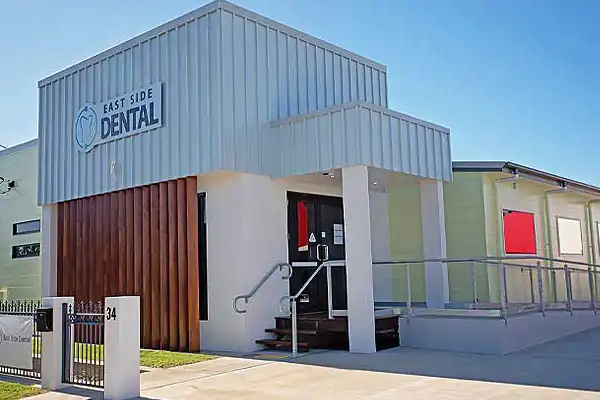Dental Abscess
Oral abscess is a pocket of pus
Dental abscess is a pocket of pus that accumulates due to a bacterial infection. The disease damages oral tissues and can spread to other parts of the body, causing serious health problems in some cases. A tooth with an abscess will not heal on its own and must be treated by a dentist.

What is dental abscess?
There is a pocket of pus (infection) around the root of a tooth. In most cases, abscesses look like red bumps, boils, or pimples. The infection affects the involved tooth, but can also spread to surrounding bone and neighboring teeth. It is a part of our natural defence mechanism, aimed to block the infection from reaching other areas.
Dental abscesses can be very painful. A dentist should be consulted as soon as you develop mouth pain, a toothache or a red, swollen bump on your gums.
Types of dental abscess
There are three main types of oral abscess: periodontal, periapical and gingival. A periapical abscess usually begins in the pulp/nerve inside the tooth and develops on the root tip. Periodontal abscess occurs deeper into the gum pockets next to a tooth root. A gingival abscess usually occurs on the surface of the tissue at the gum line of the teeth.
Symptoms of dental abscess
Symptoms of a tooth abscess also include throbbing toothache that radiates to the jawbone, neck or ear, difficulty in chewing or biting, swelling in your face accompanied by severe, persistent pain.
Causes of dental abscess
Tooth abscess occurs when tooth decay is left to spread, and bacteria invade the dental pulp. Bacteria usually enters through a dental cavity or a chip or crack in the tooth and spreads down to the root. Abscess also result from external damage to the gum, gingivitis, trauma or due to complications from dental surgery such as root canal treatment and extractions
Risk factors
Risk factors of developing tooth abscess is usually due to untreated cavities in the tooth or trauma to the tooth.
Prevention
Taking care of your teeth and avoiding tooth decay is essential to preventing a tooth abscess. This includes using fluoridated drinking water, using dental floss or an inter-dental brush to clean between your teeth, brushing your teeth at least twice a day and rinsing your mouth after food. It’s also important to eat healthy food and visiting your dentist for regular checkups and professional cleaning (Scaling).

Get in touch with us at Eastside Dental
Dental Abscess damages oral tissues and can spread to other parts of the body, causing serious health problems in some cases. A tooth with an abscess will not heal on its own and must be treated by a dentist.
If you are experiencing any of the above symptoms, come and meet us. Any of these conditions may indicate a problem. Besides, at Eastside Dental, we start with a thorough dental checkup. This also includes your general health, dietary habits and teeth cleaning schedule. Call (07) 4151 7305 for an appointment.
Payment Options / Plans
Payment plans are essentially loans, which can support you in managing the high cost of dental treatment. Rather than paying for your dental work in an upfront lumpsum, a payment plan allows you to pay in instalments over a period of time. We have onboard, payment plan service providers who will make your payment plan’s instalments even more affordable.
There are several payment options available at our surgery including Cash, Cheque, EFTPOS, Credit Card, HICAPS, AMEX and Direct Deposit.







